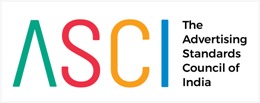The Advertising Standards Council of India (ASCI) has taken a significant step towards promoting transparency and accountability in environmental advertising. The newly introduced “Guidelines for Advertisements Making Environmental/Green Claims” are aimed at curbing greenwashing, the deceptive practice of making false or exaggerated environmental claims in advertisements.
The Rise of Greenwashing
Greenwashing has become a pervasive issue across various sectors, with advertisers making broad and often misleading environmental claims to capitalize on the growing demand for eco-friendly products and services. To address this concern, ASCI has drafted comprehensive guidelines, effective from February 15, 2024, to ensure that environmental claims in advertisements are truthful, verifiable, and transparent.
Key Guidelines to Combat Greenwashing
1. Absolute Claims with Substantiated Data
Absolute claims such as “environment-friendly” or “sustainable” must be backed by robust data and recognized accreditations. Advertisements making absolute claims cannot be diluted by disclaimers and must focus on specific components of the product or service with genuine environmental benefits.
2. Comparative Claims with Clear Basis
Comparative claims like “greener” or “friendlier” should provide evidence of environmental benefits compared to previous products, competitor products, or services. The basis of such comparisons must be transparent.
3. Full Life Cycle Consideration
General environmental claims must consider the full life cycle of the product or service, unless stated otherwise. Advertisements must not mislead consumers about the total environmental impact, and more limited claims are justifiable if the general claim cannot be justified.
4. Clear Specification of Environmental Claims
Advertisers must specify whether the environmental claim applies to the product, packaging, service, or a specific portion. Claims must not mislead consumers about the absence of environmentally damaging ingredients if those ingredients are not present in competing products.
5. Certifications and Seals of Approval
Certifications or seals of approval should clearly indicate the attributes evaluated by the certifier. The certifying agency must be nationally/internationally accredited. Visual elements implying environmental benefits must not create a false impression.
6. Aspirational Claims with Actionable Plans
Advertisers should refrain from making aspirational claims about future environmental objectives unless they have clear and actionable plans to achieve them.
7. Carbon Offset Disclosures
For carbon offset claims beyond the next two years, advertisers must disclose this prominently. Claims should not misrepresent carbon offsets as emission reductions if they were required by law.
8. Qualification of Claims
Claims about compostability, biodegradability, recyclability, non-toxicity, etc., should be qualified, and scientific evidence must support them.
ASCI’s Commitment to Transparency
Manisha Kapoor, CEO and Secretary-General of ASCI, emphasized the importance of these guidelines in providing consumers with accurate information to make informed choices. The guidelines align with the government’s concerns about greenwashing, promoting transparency, and accountability in environmental claims made in advertising.
About ASCI
The Advertising Standards Council of India (ASCI) has been committed to self-regulation in advertising since its establishment in 1985. Recognized by various government bodies, ASCI ensures that advertisements adhere to its Code for Self-Regulation, promoting legal, decent, honest, and truthful advertising. The recently launched ASCI Academy further strengthens its role in building responsible and progressive advertising practices.
In conclusion, ASCI’s proactive approach in combating greenwashing is a significant stride towards a more honest and transparent advertising landscape, fostering consumer trust and supporting businesses genuinely committed to environmental sustainability. Advertisers are urged to familiarize themselves with these guidelines to uphold ethical advertising practices and contribute to a greener future.









